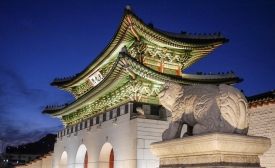south korea
South Koreans have long been proud of their “wave,” the soft-power juggernaut of boy bands, movies and products that have penetrated Southeast Asia in a big way in recent years.
What's Japan’s Ministry of Economy, Trade and Industry's (METI), then, come up with as a solution? Jumpstarting international interest in its other endeavors, of course — fashion, design, anime. And to put a little umph in its appeal, they named their latest campaign Cool Japan.
The hallyu – or “Korean wave” as the phenomenon is known in Asia – is now spreading to Europe and the US, and spurring South Korea’s export earnings. Cultural exports are...giving the once reclusive country a global cachet for the first time, shaking off the war-torn images of the US comedy M*A*S*H.
As the world becomes more and more "flat," per se, exchanges and communications become astonishingly bidirectional. And hybrid products are born through this bidirectional "flattening," process as you easily find in all manufactured and cultural products. Korean entertainment producers are smart enough to know how to blend ingredients for universal attraction...Therefore, pop culture is speedily eroding boundaries of nations, as any multinational companies do.
The growing ranks of other Korean American performers recruited by management companies like SM Entertainment and JYPE in U.S.-based talent searches — aren’t just a random act of globalization. They’re the secret weapon in Korea’s next push for worldwide youth-culture domination.
"The spread of Korean popular culture is exceptional as it was not founded upon the traditional factors of military and economic dominance that characterized that of Western imperial powers, or the diaspora networks of India and China," said Liew, who has been tracking South Korean popular culture for almost a decade.

A brief look at current public diplomacy practices and what the future might hold
Korean policymakers are discussing the “Korean Wave 3.0.” The Korean Wave, or hallyu in Korean, means the export of Korean entertainment and other culture. The “Version 1.0” of the wave was the success of TV dramas and movies starting about 10 years ago. And “Version 2.0” is what’s been happening with K-pop music over the last year or so.







